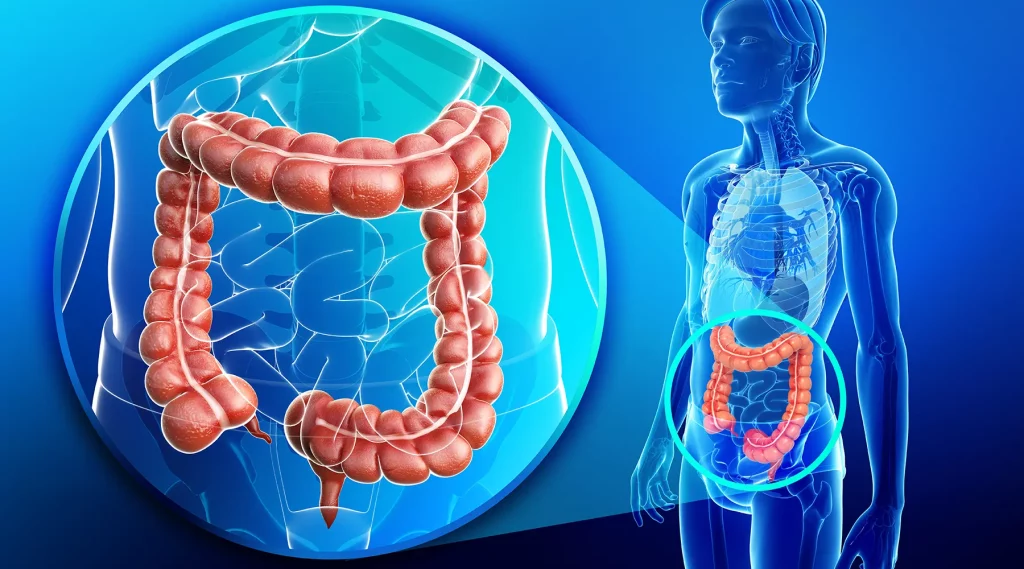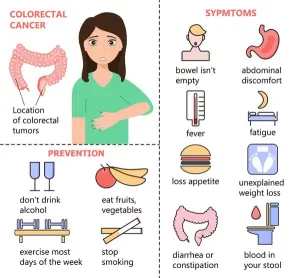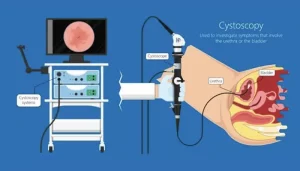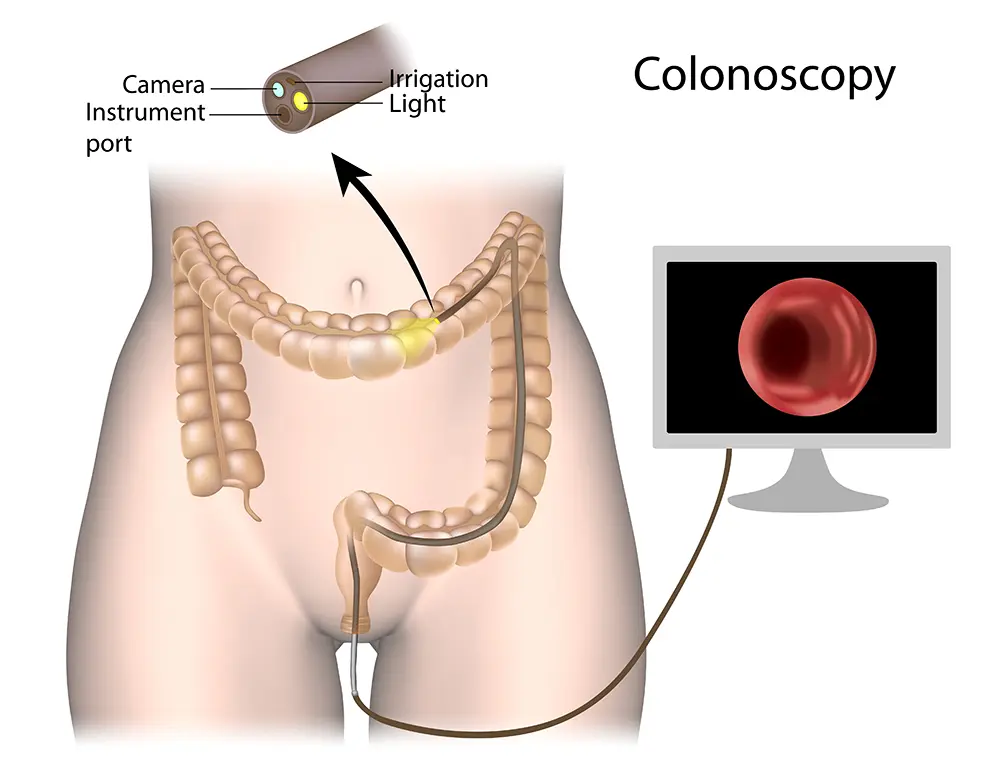
Ung thư đại trực tràng rất phổ biến ở người Singapore. Trên thực tế, đây là bệnh ung thư phổ biến nhất ở nam giới Singapore và là bệnh ung thư phổ biến thứ 2 ở phụ nữ Singapore1. Hơn nữa, đàn ông Singapore có tỷ lệ mắc ung thư đại trực tràng cao nhất ở Đông Nam Á, với tỷ lệ mắc cao ngang với các nước phương Tây.2.
Mỗi ngày có 3 đàn ông Singapore và 2 phụ nữ Singapore được chẩn đoán mắc bệnh ung thư đại trực tràng1. Điều đáng lo ngại nhất là sự gia tăng xu hướng mắc bệnh ung thư đại trực tràng trên toàn cầu ở người trưởng thành dưới 50 tuổi. Tổ chức theo dõi SEER của Viện Ung thư Quốc gia (Hoa Kỳ) đã chỉ ra tỷ lệ mắc bệnh ung thư đại trực tràng ngày càng tăng ở mức 2% mỗi năm3. Hơn 2/3 số ca ung thư đại trực tràng ở người trẻ tuổi không liên quan đến tiền sử gia đình mắc bệnh ung thư đại trực tràng và có xu hướng được chẩn đoán ở các giai đoạn sau trong khi cần phải có một diễn biến lâm sàng tích cực hơn.

Nói chung, ung thư đại trực tràng khởi phát khi các tế bào khỏe mạnh trong ruột kết phát triển những thay đổi (đột biến) trong DNA của chúng. Thông thường, cần có nhiều thay đổi về DNA theo thời gian để khiến tế bào phát triển ngoài tầm kiểm soát.
Hầu hết những thay đổi DNA này là lẻ tẻ và chưa được hiểu rõ. Một số yếu tố nguy cơ có thể sửa đổi được sẽ làm tăng cơ hội đạt được những thay đổi DNA này. Bao gồm:
Có những yếu tố rủi ro không thể kiểm soát được bao gồm:

Ung thư đại trực tràng có thể xuất hiện cùng các triệu chứng sau:
Tuy nhiên, hầu hết các bệnh ung thư đại trực tràng giai đoạn đầu thường có ít hoặc không có triệu chứng khi khối u còn nhỏ. Do đó, tầm soát polyp và ung thư vẫn là chiến lược hiệu quả nhất trong việc giảm tỷ lệ tử vong do ung thư đại trực tràng gây ra.
Tầm soát ung thư đại trực tràng có nghĩa là xét nghiệm những người khỏe mạnh, có nguy cơ cao và không có triệu chứng. Ý tưởng ở đây là xác định polyp và ung thư ở giai đoạn đầu để việc can thiệp mang lại cơ hội chữa khỏi cao nhất. Thật không may, ở Singapore, chỉ có khoảng 2 trong 5 người từ 50 đến 69 tuổi đi tầm soát ung thư đại trực tràng theo tần suất được khuyến nghị.
Có nhiều phương pháp khác nhau được phát triển để tầm soát ung thư đại trực tràng, mỗi xét nghiệm đều có ưu và nhược điểm riêng
Hiệp hội Ung thư Singapore đã triển khai bộ xét nghiệm hóa miễn dịch phân (FIT) miễn phí hàng năm cho tất cả người dân Singapore và thường trú nhân trên 50 tuổi.5 FIT rẻ tiền, đơn giản, không xâm lấn và có thể tự thực hiện tại nhà mà không cần điều chỉnh chế độ ăn uống. Tuy nhiên, xét nghiệm này cần được thực hiện hàng năm và mọi kết quả bất thường sẽ cần được theo dõi bằng phương pháp nội soi để loại trừ polyp hoặc ung thư.
Quá trình kiểm tra trực quan đại tràng đúng cách sẽ yêu cầu làm sạch ruột trước bằng cách sử dụng thuốc nhuận tràng để vệ sinh ruột.

Một ống nội soi (ống mềm có gắn đèn ở đầu) được bác sĩ đưa qua hậu môn dọc theo toàn bộ chiều dài của đại tràng để tìm polyp hoặc ung thư. Có thể lấy mẫu bất kỳ điểm bất thường nào bằng cách sử dụng một dụng cụ nhỏ đưa qua ống nội soi. Thuốc an thần nhẹ thường được sử dụng trước khi thực hiện thủ thuật để giúp bạn cảm thấy thoải mái.
Máy soi đại tràng sigma được sử dụng để kiểm tra trực tràng và đại tràng sigma và cho phép lấy mẫu bất kỳ tổn thương đáng ngờ nào. Chỉ quan sát được 60 cm cuối cùng của trực tràng/đại tràng.
Máy CT xoay quanh cơ thể và chụp nhiều hình ảnh vùng bụng. Sau đó, phần mềm máy tính đặc biệt sẽ tái tạo hình ảnh 3 chiều bên trong đại tràng và trực tràng, cho phép bác sĩ tìm kiếm polyp và ung thư. Tuy nhiên, không thể lấy mẫu tổn thương đáng ngờ và bệnh nhân có kết quả bất thường sẽ cần phải trải qua thủ thuật nội soi đại tràng chính thức.
Đối với những người có nguy cơ trung bình, hầu hết các hướng dẫn đều khuyến nghị tầm soát ung thư đại trực tràng bắt đầu từ 50 tuổi trở đi. Năm 2018, Hiệp hội Ung thư Hoa Kỳ đã hạ độ tuổi bắt đầu tầm soát đại trực tràng xuống 45 tuổi. Đối với những người có nguy cơ mắc ung thư đại trực tràng cao hơn do tiền sử cá nhân hoặc gia đình mắc polyp/ung thư đại trực tràng hoặc các hội chứng di truyền tiềm ẩn, các biện pháp tầm soát và phòng ngừa cần được cá nhân hóa và bắt đầu sớm hơn rất nhiều.
Ung thư đại trực tràng được chẩn đoán chính thức bằng phương pháp nội soi và sinh thiết bất kỳ khối đáng ngờ nào được nhìn thấy. Đôi khi, bệnh nhân biểu hiện bệnh ở giai đoạn 4 và có các vị trí khác có thể tiếp cận được để sinh thiết dưới hướng dẫn X-quang mà không cần uống thuốc xổ ruột.
Sau khi chẩn đoán ung thư đại trực tràng được xác nhận, sẽ cần thực hiện các xét nghiệm phân giai đoạn để xác định giai đoạn ung thư và kế hoạch điều trị thích hợp. Thông thường, bệnh nhân sẽ được yêu cầu trải qua một số xét nghiệm máu cơ bản và chụp chiếu bổ sung.
Đối với ung thư trực tràng, thủ thuật MRI trực tràng sẽ hữu ích trong việc xác định mức độ liên quan đến các cấu trúc/hạch bạch huyết tại chỗ. Chụp CT hoặc chụp PET sẽ hữu ích để loại trừ khả năng di căn xa của ung thư.

 Việc điều trị thích hợp ung thư đại trực tràng phụ thuộc vào:
Việc điều trị thích hợp ung thư đại trực tràng phụ thuộc vào:
Ung thư đại trực tràng giai đoạn 1 thường được điều trị bằng phẫu thuật đơn thuần. Một số trường hợp ung thư đại tràng giai đoạn 2 có đặc điểm bất lợi trên mẫu bệnh phẩm phẫu thuật có thể cần phải hóa trị sau phẫu thuật (hóa trị bổ trợ) để giảm nguy cơ tái phát. Bệnh nhân ung thư đại tràng giai đoạn 3 thường được khuyên nên trải qua quy trình hóa trị bổ trợ sau phẫu thuật. Ung thư đại tràng giai đoạn 4 thường được điều trị bằng liệu pháp hóa trị liệu nhắm mục tiêu hoặc liệu pháp miễn dịch. Một số bệnh nhân ung thư đại tràng giai đoạn 4 có mức độ lây lan hạn chế, đặc biệt là ở gan hoặc phổi, có thể phù hợp để phẫu thuật nhằm mục đích chữa bệnh/phá hủy tại chỗ kết hợp với hóa trị. Xạ trị có vai trò được xác định rõ ràng trước khi phẫu thuật trong ung thư trực tràng tiến triển tại chỗ, nhằm cải thiện khả năng kiểm soát tại chỗ và giảm tái phát tại chỗ. Phương pháp này cũng có thể được sử dụng để triệt các khu vực di căn khó mổ của ung thư.
Phẫu thuật là phương pháp điều trị chính cho bệnh ung thư đại trực tràng giai đoạn đầu. Phương pháp này cũng được sử dụng trong trường hợp gây nếu bị tắc ruột hoặc chảy máu nhiều. Phẫu thuật liên quan đến việc loại bỏ khối u và các hạch bạch huyết gần đó. Cắt bỏ một phần ruột già (cắt bỏ một phần ruột già có chứa khối u cùng với một đoạn nhỏ ruột bình thường) là thủ thuật thường được sử dụng. Phần đại tràng khỏe mạnh còn lại thường được nối lại trong cùng một ca phẫu thuật. Phẫu thuật nội soi đang trở thành tiêu chuẩn cho những bệnh nhân phù hợp vì thời gian hồi phục ngắn hơn nhiều mà không ảnh hưởng đến kết quả điều trị ung thư
Hậu môn nhân tạo là nơi đại tràng được đưa lên lỗ hở trên da bụng. Cần phải sử dụng phương pháp này trong những trường hợp tắc ruột không thể đặt stent hoặc phẫu thuật ung thư trực tràng để cho phép chữa lành tốt hơn phần đại tràng được gắn lại ở phía hướng xuống. Một số ít bệnh nhân mắc các tình trạng di truyền tiềm ẩn hoặc bệnh viêm ruột nặng có thể cần phải cắt bỏ toàn bộ đại tràng, tức là cắt bỏ toàn bộ chiều dài của đại tràng.
Xạ trị là phương pháp điều trị sử dụng tia có năng lượng cao để tiêu diệt tế bào ung thư. Xạ trị có thể được sử dụng trong các trường hợp sau:
Ung thư trực tràng tiến triển cục bộ đang được cân nhắc phẫu thuật có thể được hưởng lợi từ xạ trị trước (thường kết hợp với hóa trị) trước khi phẫu thuật để giảm tỷ lệ tái phát cục bộ. Việc điều trị bằng xạ trị trước phẫu thuật được dung nạp tốt hơn so với xạ trị sau phẫu thuật và không làm tăng các biến chứng phẫu thuật.
Đối với một số bệnh nhân có tổn thương nhỏ ở những vị trí phù hợp, việc cắt bỏ tổn thương cục bộ bằng liệu pháp xạ trị lập thể định vị thân (SBRT) có thể cho phép kiểm soát ung thư tốt bằng phương pháp không xâm lấn. Điều này đạt được bằng cách cung cấp liều xạ trị rất mạnh và chính xác đồng thời giảm thiểu tổn thương cho các mô bình thường xung quanh.
Có thể giúp cải thiện các triệu chứng như đau/chảy máu do khối u lớn đè lên các cấu trúc quan trọng.
Hóa trịlà phương pháp điều trị sử dụng các loại thuốc chống ung thư hoạt động theo nhiều cách khác nhau để tiêu diệt các tế bào ung thư. Có nhiều loại thuốc hóa trị có hiệu quả điều trị ung thư đại trực tràng ở cả dạng uống và tiêm tĩnh mạch. Hóa trị được thực hiện theo các chu kỳ (lịch trình hóa trị) khác nhau, thường là 2-3 tuần một lần. Hóa trị bổ trợ sau phẫu thuật thường kéo dài đến 6 tháng. Trong bối cảnh di căn, hóa trị thường được kết hợp với liệu pháp nhắm mục tiêu. Các tác dụng phụ của hóa trị là khác nhau và hầu hết các loại thuốc điều trị ung thư đại trực tràng không dẫn đến rụng tóc nhiều, nôn mửa nghiêm trọng hoặc suy giảm nghiêm trọng hệ thống miễn dịch. Bác sĩ của bạn sẽ có thể quản lý và hướng dẫn bạn vượt qua các tác dụng phụ của hóa trị bằng các loại thuốc hỗ trợ.
Những thay đổi về gen hoặc protein cụ thể trong bệnh ung thư đại tràng có thể đạt được nhờ liệu pháp nhắm mục tiêu, được sử dụng kết hợp với hóa trị liệu hoặc sử dụng riêng lẻ. Các vai trò chủ yếu được xác định đối với ung thư đại tràng giai đoạn 4. Do đó, điều quan trọng là các tế bào khối u phải được xét nghiệm đột biến khác nhau để lựa chọn liệu pháp nhắm mục tiêu hiệu quả nhất.
Liệu pháp miễn dịch bao gồm việc tiêm kháng thể vào tĩnh mạch để tăng cường khả năng nhận biết miễn dịch và tiêu diệt tế bào ung thư. Khoảng 3-5% bệnh nhân ung thư đại tràng giai đoạn 4 không thể phẫu thuật bị thiếu hụt protein sửa chữa ghép cặp sai ADN (dMMR). Dựa trên dữ liệu gần đây từ thử nghiệm Keynote-177, Pembrolizumab đơn vượt trội hơn liệu pháp hóa trị liệu đầu tay với ít tác dụng phụ hơn và đáp ứng lâu bền hơn nhiều8. Liệu pháp miễn dịch cũng có thể có lợi ở những bệnh nhân có mật độ đột biến khối u (TMB) cao như được xác định bằng phương pháp giải trình tự các tế bào khối u mới nhất.
Ung thư đại trực tràng là căn bệnh ung thư phổ biến ở nam giới và phụ nữ Singapore. Ngoài ra còn có xu hướng gia tăng đối với độ tuổi khởi phát trẻ hơn. Các xét nghiệm tầm soát thích hợp để xác định các polyp tiền ung thư và ung thư đại trực tràng giai đoạn đầu, nhằm tăng cơ hội chữa khỏi bệnh lâu dài. Đã có những tiến bộ lớn trong phương pháp điều trị ung thư đại trực tràng với các công cụ lựa chọn phương pháp điều trị tốt hơn, hóa trị và liệu pháp nhắm mục tiêu hiệu quả hơn, kỹ thuật phẫu thuật và xạ trị hiện đại hơn cũng như dịch vụ chăm sóc hỗ trợ tốt hơn. Tham khảo ý kiến của bác sĩ chuyên khoa ung thư của chúng tôi để điều trị ung thư đại trực tràng ở Singapore.
The Cancer Centre @ Paragon
290 Orchard Road #17-05/06
Paragon Medical (Lobby F)
Singapore 238859
The Cancer Centre @ Mount Elizabeth Orchard
3 Mount Elizabeth #03-04
Mount Elizabeth Medical Centre
Singapore 228510

BOOK AN APPOINTMENT
Được thành lập vào năm 2005, Tập đoàn Y tế Singapore (SMG) là một tổ chức chăm sóc sức khỏe với mạng lưới các nhà cung cấp chuyên khoa tư nhân trên bốn trụ cột đã được thiết lập - Thẩm mỹ, Chẩn đoán hình ảnh & Sàng lọc, Ung thư và Sức khỏe Phụ nữ và Trẻ em. Tại Singapore, SMG có hơn 40 phòng khám có vị trí chiến lược ở trung tâm Singapore và các khu trung tâm. Ngoài Singapore, SMG cũng đã có mặt tại Indonesia, Việt Nam và Úc. Tìm hiểu về chính sách bảo mật của chúng tôi tại đây.
